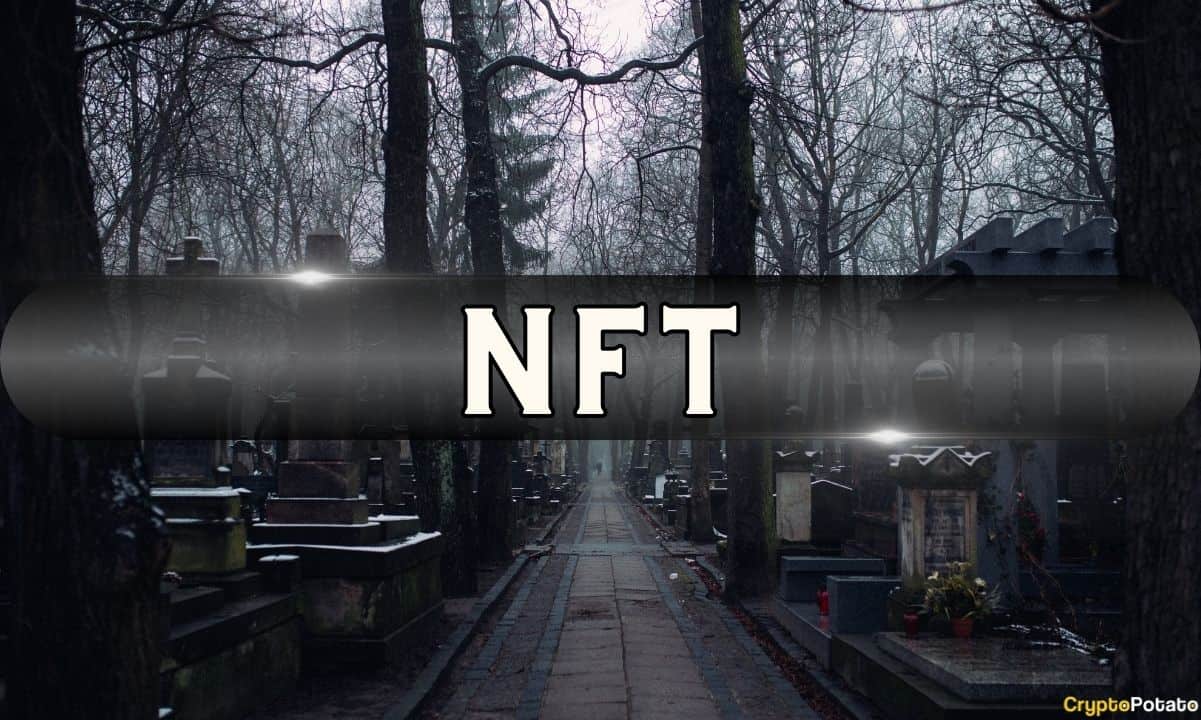The non-fungible token (NFT) market has witnessed explosive growth, followed by significant downturns over the past few years. Despite the initial hype and heavy investment, it is now grappling with severe instability.
According to a report from nftevening.com, a staggering 96% of NFTs are considered “dead” based on three factors – zero trading volume, minimal 7-day sales, and inactivity on Twitter.
NFT Market Decline
After examining over 5,000 NFT collections and collected 5 million transactions from NFTScan, nftevening found that over 4 out of 10 or 43% of NFT owners are currently unprofitable. Moreover, the average lifespan of an NFT is only 1.14 years – 2.5 times shorter than that of traditional crypto projects.
This brief lifespan highlights the highly speculative environment of NFTs, where swift price swings and the allure of digital assets often fail to sustain long-term worth.
nftevening stated,
“The data paints a clear picture: the NFT market previously praised as the future of digital ownership and investment, is encountering significant difficulties. The high unprofitability rate among holders, the stark contrast between successful and failing collections, and the short lifespan of NFTs all suggest that the market may not be the golden goose many had hoped for.”
A closer look at individual NFT collections revealed a significant disparity in profitability. According to the platform’s findings, the Azuki collection is the most profitable, with holders earning over 2.3 times their initial investment. This success is largely due to the collection’s strong community support, distinct artistic style, and strategic marketing efforts.
On the other hand, the Pudgy Penguins collection highlights the risks in the market, with holders experiencing a drastic 97% loss, making it the least profitable collection so far.
Oligopoly in 2024
From a period when OpenSea held a monopoly during the NFT bull run, the market evolved into a duopoly between it and Blur, and by 2024, it became more of an oligopoly with increased competition and diversity among marketplaces.
According to a recent CoinGecko report, the number of NFT marketplaces with a yearly market share above 10% has grown from just 2 in previous years to 4 this year. Blur solidified its leadership as the leader in 2023, capturing 62.4% of the market share in February and surpassing OpenSea as the dominant player for most of the year.
OKX briefly overtook Blur at the end of 2023, driven by the Ordinals hype, which boosted OKX’s NFT trading volume from $8.35 million in October to $311.36 million in November and then to $684.65 million in December.
Tensor also experienced significant growth, with its market share rising from 0.1% to 12.1% as monthly NFT trading volume surged from $1.36 million to $215.57 million, allowing Tensor to surpass its close competitor Magic Eden for the first time in December 2023.
In contrast, OpenSea, which began the year as the largest platform with a monthly NFT trading volume of $438.08 million (41.0% market share), saw a gradual decline, ending the year at $171.10 million in volume (9.6% share).
